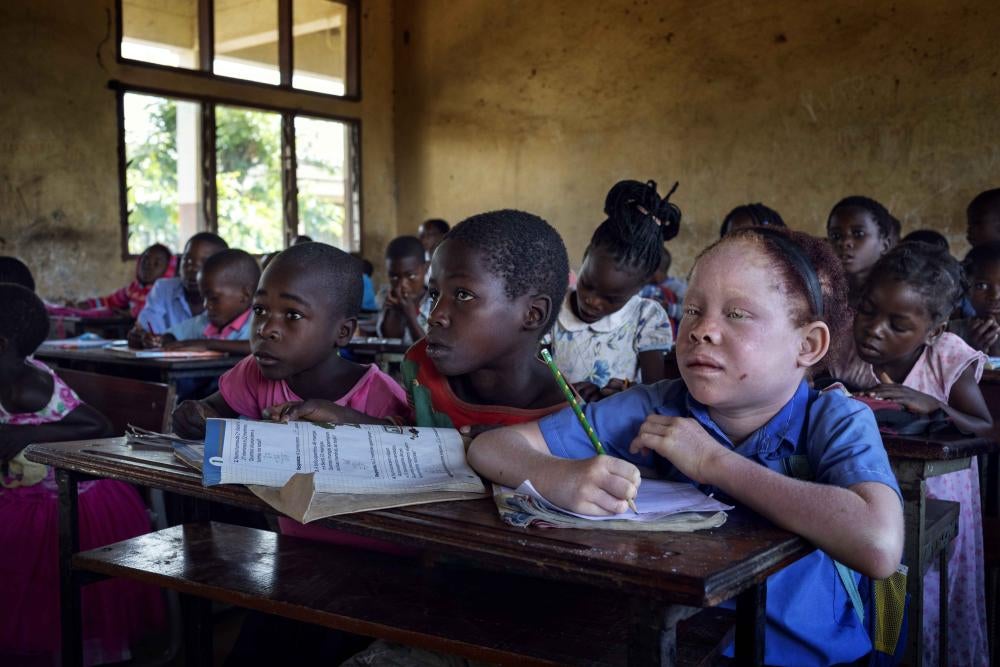 Josina, a girl with albinism, sits in her classroom in Chiuta District in Mozambique’s Tete province.
© 2019 Marcus Bleasdale for Human Rights Watch
Josina, a girl with albinism, sits in her classroom in Chiuta District in Mozambique’s Tete province.
© 2019 Marcus Bleasdale for Human Rights Watch
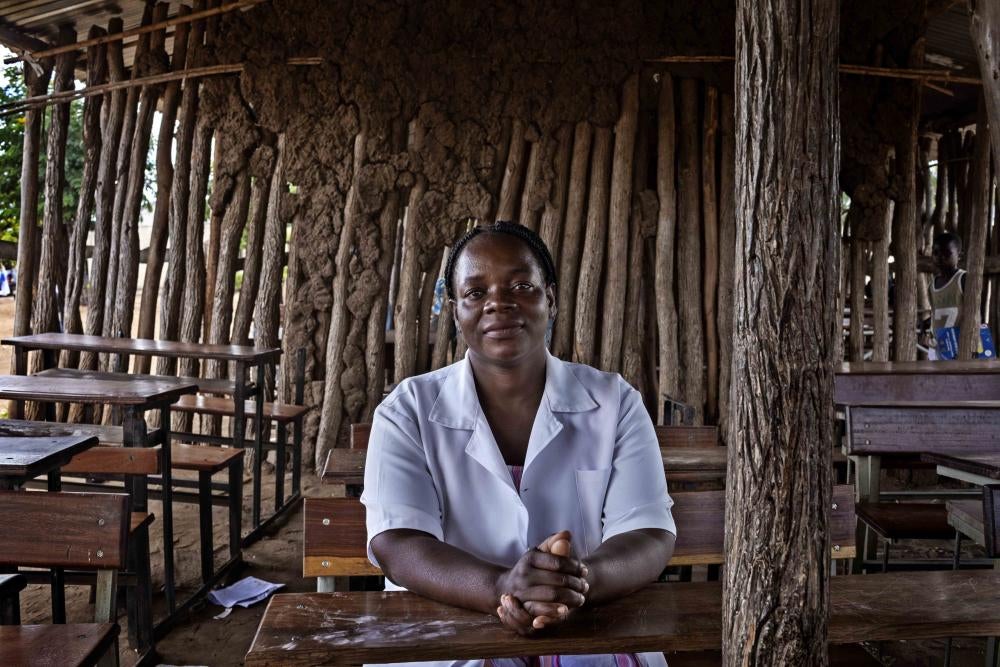 Revita, Josina’s teacher, allows her sit up close in class and gives her extra time during exams. Since last June, Revita said that some schools have introduced Braille classes, which Josina was taking.
© 2019 Marcus Bleasdale for Human Rights Watch
Revita, Josina’s teacher, allows her sit up close in class and gives her extra time during exams. Since last June, Revita said that some schools have introduced Braille classes, which Josina was taking.
© 2019 Marcus Bleasdale for Human Rights Watch
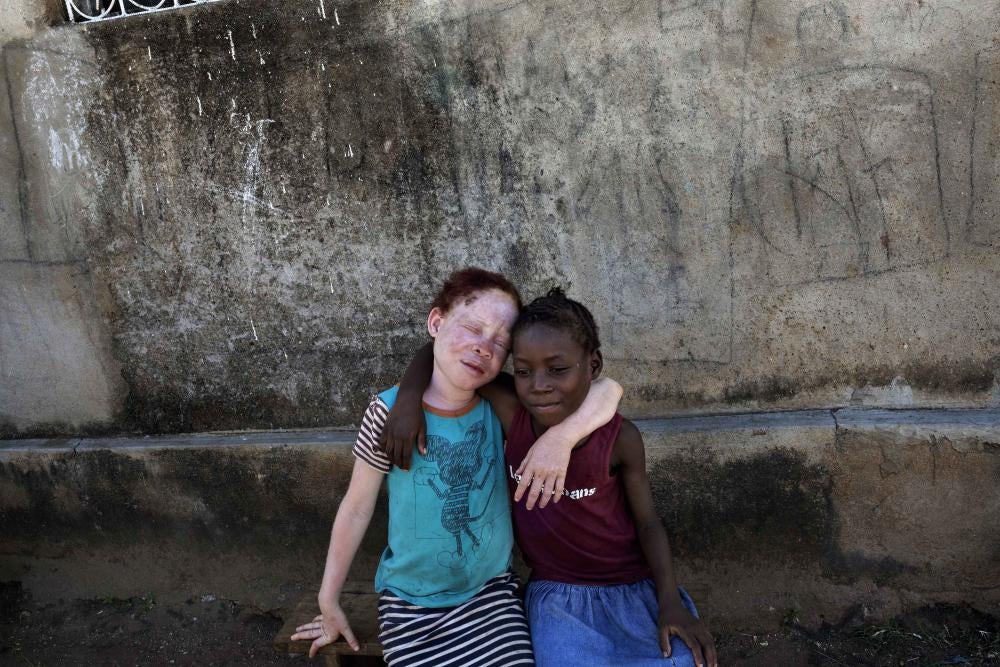 Josina (left) with her niece, Luisa, both eight at the time. “She is my best friend,” said Josina. “She is always asking if I’m ok, she helps me read after school, and she looks after me.
© 2019 Marcus Bleasdale for Human Rights Watch
Josina (left) with her niece, Luisa, both eight at the time. “She is my best friend,” said Josina. “She is always asking if I’m ok, she helps me read after school, and she looks after me.
© 2019 Marcus Bleasdale for Human Rights Watch
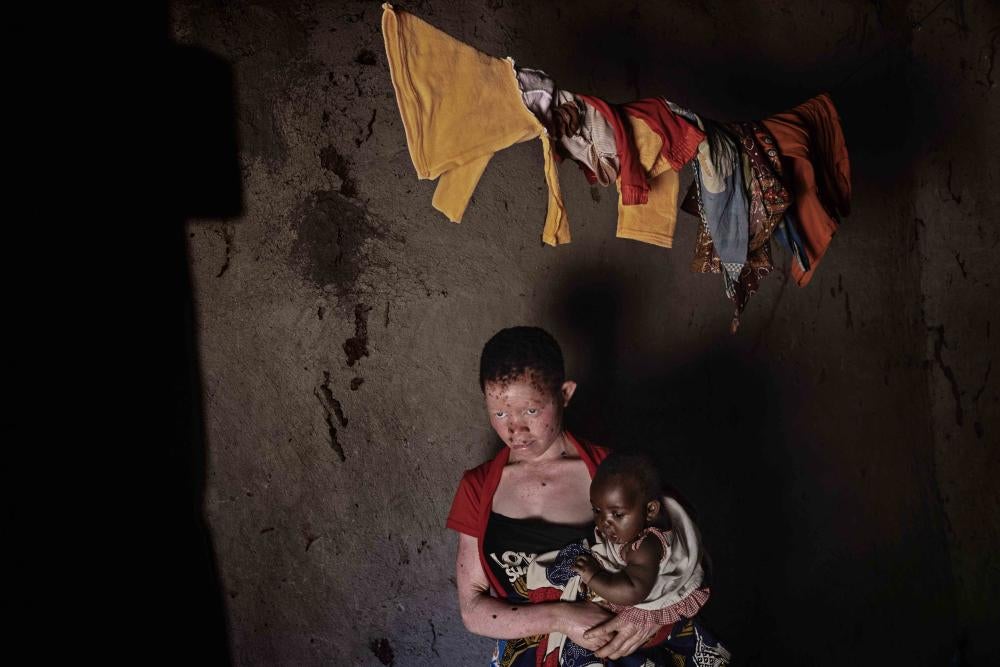 Fatima, 20, dropped out of Grade 5 after teachers bullied her because she has albinism. When she would try to sit in the front of the class to better see the blackboard, one teacher would yell, “You albino, you stay where you are!” Her father complained to the school but it only made things worse. “When the teacher would say those things to me, it allowed the students to do the same,” Fatima said. “There were no consequences for any of them.”
© 2019 Marcus Bleasdale for Human Rights Watch
Fatima, 20, dropped out of Grade 5 after teachers bullied her because she has albinism. When she would try to sit in the front of the class to better see the blackboard, one teacher would yell, “You albino, you stay where you are!” Her father complained to the school but it only made things worse. “When the teacher would say those things to me, it allowed the students to do the same,” Fatima said. “There were no consequences for any of them.”
© 2019 Marcus Bleasdale for Human Rights Watch
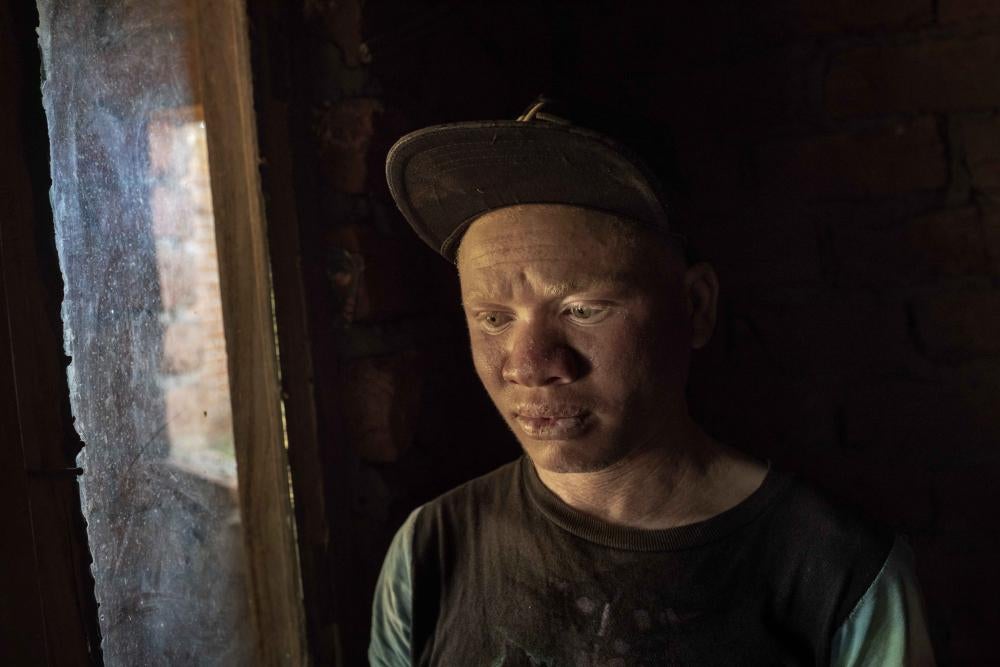 “My dream was to become a teacher. It's good work. I still have the dream but I can't go to school,” said Joao, 19, who dropped out of school for fear of kidnapping. He now works in the fields with his father, where he plants beans and maize. The work is hard and painful, because the sun hurts his skin.
© 2019 Marcus Bleasdale for Human Rights Watch
“My dream was to become a teacher. It's good work. I still have the dream but I can't go to school,” said Joao, 19, who dropped out of school for fear of kidnapping. He now works in the fields with his father, where he plants beans and maize. The work is hard and painful, because the sun hurts his skin.
© 2019 Marcus Bleasdale for Human Rights Watch
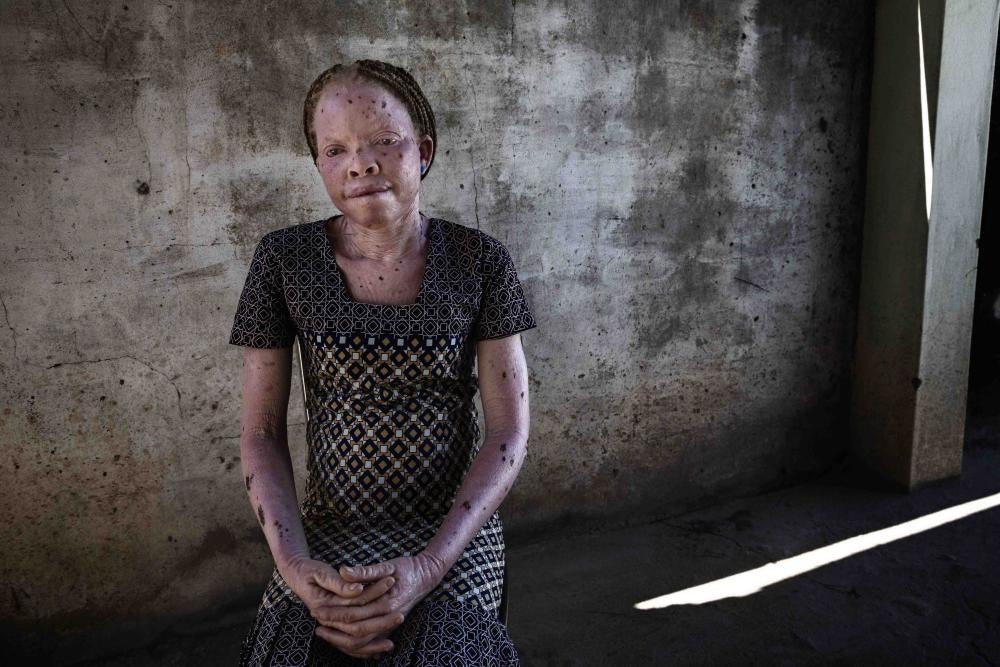 Students with albinism are not the only ones to face stigma. Cesaria, a teacher, has overheard students wishing aloud for another teacher because of her albinism. She is often called “money” or “business” outside of class. “When people say terrible things to me, I never answer,” Cesaria said. “I wonder why can't they treat me like a normal person?”
© 2019 Marcus Bleasdale for Human Rights Watch
Students with albinism are not the only ones to face stigma. Cesaria, a teacher, has overheard students wishing aloud for another teacher because of her albinism. She is often called “money” or “business” outside of class. “When people say terrible things to me, I never answer,” Cesaria said. “I wonder why can't they treat me like a normal person?”
© 2019 Marcus Bleasdale for Human Rights Watch
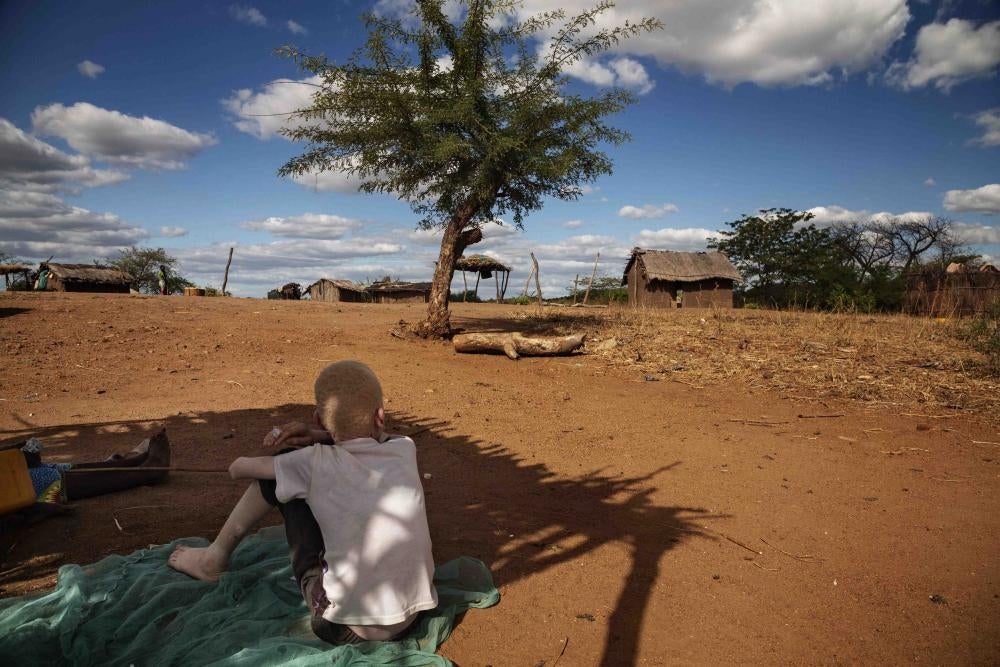 When Nelson, 13, was born, his father thought it was because of witchcraft. In September 2018 assailants broke into his house in what appeared to be a kidnapping attempt. He is afraid to go to school.
© 2019 Marcus Bleasdale for Human Rights Watch
When Nelson, 13, was born, his father thought it was because of witchcraft. In September 2018 assailants broke into his house in what appeared to be a kidnapping attempt. He is afraid to go to school.
© 2019 Marcus Bleasdale for Human Rights Watch
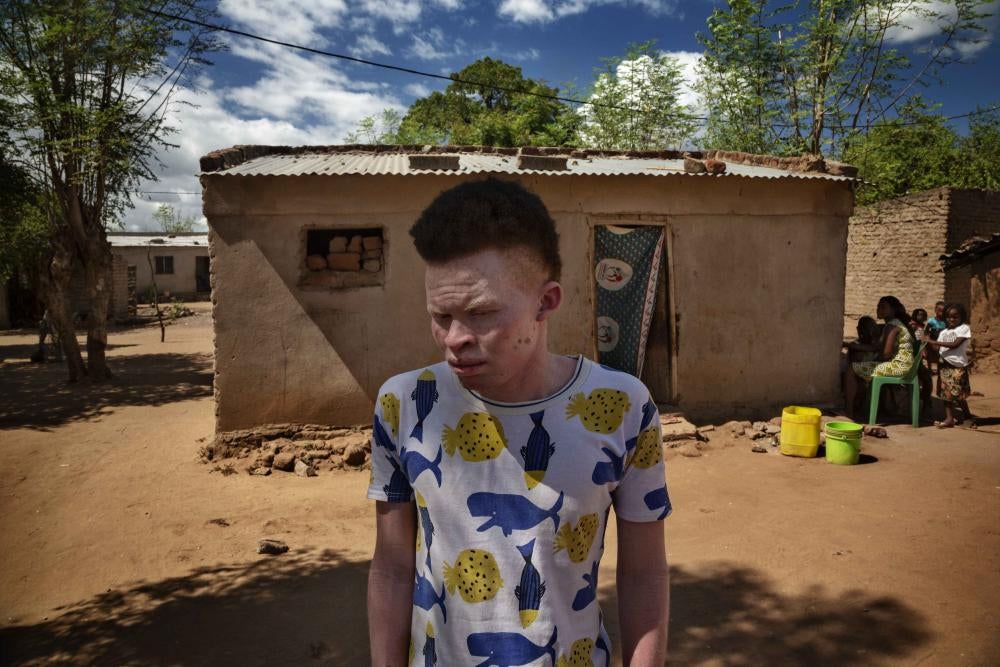 Luisinho, 26, quit his job selling second-hand clothes on the street because he could not afford sunscreen and his skin would burn. He tries to find work as a singer.
© 2019 Marcus Bleasdale for Human Rights Watch
Luisinho, 26, quit his job selling second-hand clothes on the street because he could not afford sunscreen and his skin would burn. He tries to find work as a singer.
© 2019 Marcus Bleasdale for Human Rights Watch
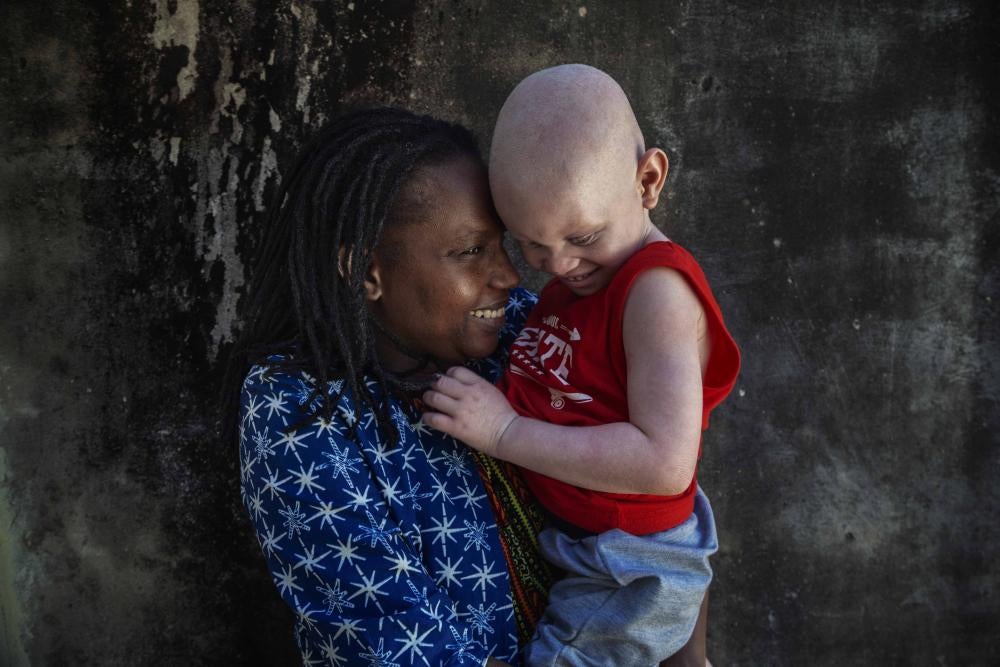 Flavia Pinto, head of Azemap, a volunteer-run organization that supports people with albinism, with a toddler that she is in the process of adopting. The child’s father was convicted of attempting to sell him.
© 2019 Marcus Bleasdale for Human Rights Watch
Flavia Pinto, head of Azemap, a volunteer-run organization that supports people with albinism, with a toddler that she is in the process of adopting. The child’s father was convicted of attempting to sell him.
© 2019 Marcus Bleasdale for Human Rights Watch
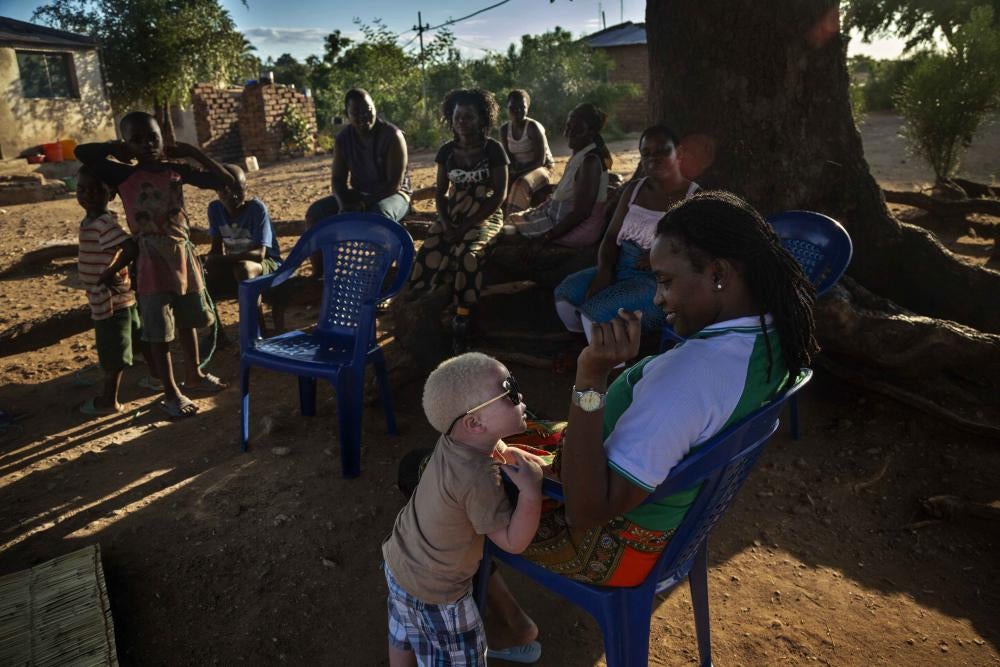 Flavia Pinto, head of Azemap, with one of her organization’s beneficiaries. Founded in 2016 to support persons with albinism, volunteer-run Azemap provides much-needed supplies –such as soap for sensitive skin, sunscreen, prescription glasses, eye drops—to children with albinism across Tete province.
© 2019 Marcus Bleasdale for Human Rights Watch
Flavia Pinto, head of Azemap, with one of her organization’s beneficiaries. Founded in 2016 to support persons with albinism, volunteer-run Azemap provides much-needed supplies –such as soap for sensitive skin, sunscreen, prescription glasses, eye drops—to children with albinism across Tete province.
© 2019 Marcus Bleasdale for Human Rights Watch